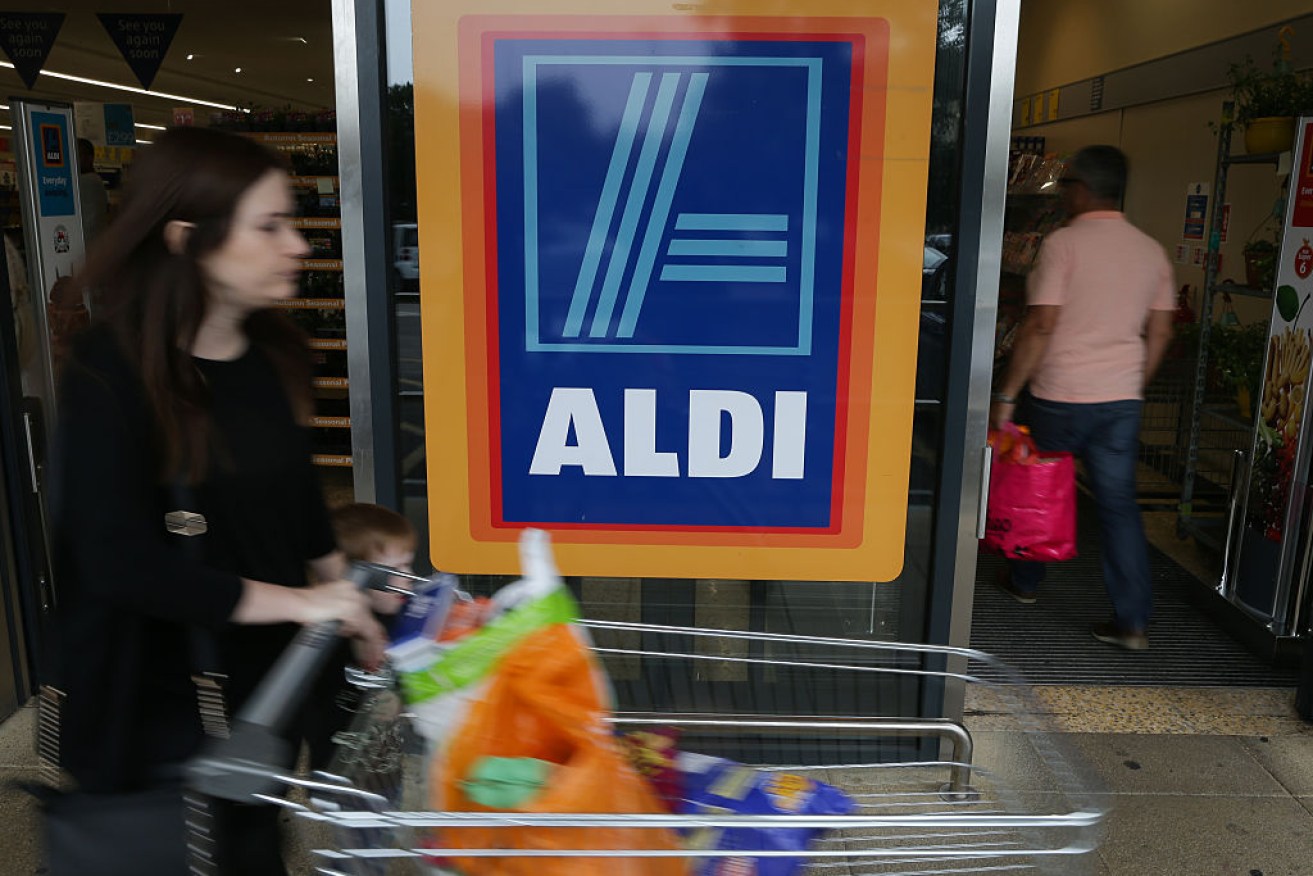Three cheers for Aldi … and the company about to rip into it


In an era of stagnant wages, Aldi's low prices have become even more of a drawcard. Photo: Getty
Genuine competition is a wonderful thing for consumers, so it’s been heartening to see a lot more of that in Australia’s supermarkets.
Just five years ago, the ‘Coles-Woolies duopoly’ was getting plenty of media attention, and in Canberra minor parties and crossbenchers were threatening to make the lack of competition in the groceries sector an election issue.
How different things look today, thanks largely to continuing price pressure from the German Aldi supermarket chain, and to a much lesser extent from the American chain Costco.
Price pressure is what was needed, because the big two had way too much power when it came to extracting over-the-odds profits from Aussie households.
The good news is that we’ll soon see more of the same. Another German supermarket chain, Kaufland, is expected to launch up to 10 stores in Australia by the end of 2019, according to analysts at Morgan Stanley – a figure that could grow to nearly 300 if its previous European success is replicated here.
The Aldi beachhead
Price is not the only thing consumers look for in groceries. Store location, a wide range, premium quality lines, fresh produce, loyalty schemes and the overall ‘brand experience’ all matter.
But in an era of stagnant wage growth, price is a huge factor for many households.
On that metric, it is Aldi that has done most to keep shopping bills down – and for that, at this point in retail history, it deserves to be acknowledged.
I’m not just saying that because of the tens of thousands of dollars I’ve personally saved over the past 15 years – easily $60 a week – but because when shoppers take home that kind of spare change, they tend to spend it on other goods and services.
A decade ago I could regularly be seen pushing a trolley out of Aldi piled high with bags of nappies, dozens of flavours of baby food, enough pasta and sauces to outlast a nuclear winter, not to mention that other parenting essential – unspecified quantities of beer and wine.
Other parents in my neighbourhood raved about Aldi’s prices, because they left enough money in the kitty to pay somebody to fix the fence, service the car or cover a trip to the movies to see the latest Pixar film.
That major change in Australian shopping habits is something most people will be grateful for – though not the proprietors of independent supermarkets supplied by Metcash, including IGA stores.
They have been overtaken by Aldi and continue to lose market share.
What goes around …
Okay, that’s enough praise for Aldi. Before its Australian executives get too big-headed, what I’m really praising is competition itself – and we’re about to see a whole lot more of that.
The Kaufland chain, like Aldi in 2001, is bringing new formats that will catch the existing majors off balance.
In Germany it reportedly runs stores ranging from 3000 to 20,000 square metres, and therefore stands a good chance of finding profitable sites in Australia that Woolies, Coles and Aldi would see as unworkable.
If it can do that, it will be succeeding where many of the IGAs and other independents have not. Market research group IBISWorld estimated last month its market share would fall to 7.4 per cent by the end of this financial year, compared with 9.2 per cent for Aldi, 30.3 per cent for Coles and 37.2 per cent for Woolies.
Those are the numbers Kaufland will be eyeing up as it prepares its assault.
Aldi’s great success has been to force grocery prices down generally in Australia, but the surprising thing is that while Coles and Woolies have dropped their prices, they have still managed to increase their market share overall.
That means that, in net terms, it’s the small and independent grocers who have suffered most.
As Kaufland gets busy recruiting staff for its launch next year, the big question is whether it will be eating Aldi’s lunch, or taking a bite out of the big two.
In terms of price competition, the latter would be better for the new generation of families staggering through the car parks with overladen trolleys.
Either way, expect the Australian consumer to be the winner.
So let’s have three cheers for Aldi’s success in bringing real price competition Australia’s supermarkets – and another three for Kaufland as it prepares to give Aldi a taste of its own medicine.








